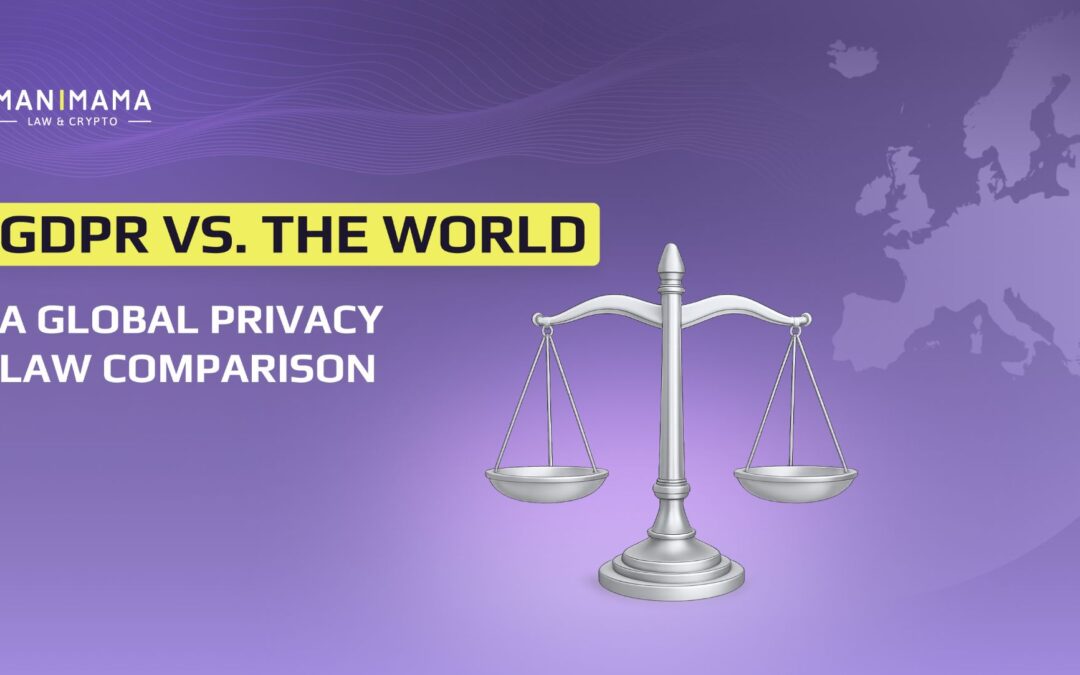When the General Data Protection Regulation (GDPR) came into force, it quickly became the gold standard in data protection. But it didn’t stand alone for long. Countries around the world followed suit, crafting their own regulations to protect personal information, sometimes inspired by GDPR, sometimes going their own way entirely.
So, what’s the difference between GDPR and other major data protection laws like the CCPA, Brazil’s LGPD, or China’s PIPL? And if your business operates globally, how can you stay on top of overlapping and sometimes conflicting compliance obligations?
Let’s walk through the major global data privacy frameworks, compare them with GDPR, and look at what businesses need to know heading in 2025.
GDPR at a Glance
Before we dive into comparisons, let’s recap what makes the GDPR unique.
- Applies to any company processing personal data of EU/EEA residents (regardless of where the company is based)
- Explicit consent is required for most data processing
- Grants broad rights to individuals (access, erasure, objection, portability, etc.)
- Requires Data Protection Officers (DPOs) in certain situations
- Fines can reach up to €20 million or 4% of global turnover, whichever is higher
GDPR set a precedent not just in Europe, but worldwide. But how does it stack up next to other major laws?
GDPR VS California Consumer Privacy Act (CCPA)
CCPA, effective since 2020, is often called the American version of GDPR but there are key differences.
First, CCPA protects residents of California specifically, while GDPR protects people across the entire EU/EEA. CCPA uses an opt-out model, meaning companies can process data until a consumer says otherwise. GDPR, on the other hand, requires clear, active consent in most cases.
Also, CCPA applies mainly to large companies or those that make a significant portion of their revenue from personal data. GDPR applies to companies of all sizes if they handle EU residents’ data.
Consumer rights under CCPA include access, deletion, and the right to opt out of data sales, while GDPR offers more extensive rights like data portability and objection to processing.
With the recent expansion of CCPA through the California Privacy Rights Act (CPRA), some rules are tightening especially around sensitive data but GDPR still remains more detailed and strict overall.
GDPR VS Brazil’s LGPD
Brazil’s LGPD, implemented in 2020, closely mirrors GDPR. It applies to companies processing data of Brazilian citizens, even if the companies are outside Brazil. LGPD grants similar rights to individuals and has similar legal bases for data processing, including consent and contract.
One difference is the fine structure. LGPD fines can reach up to 2% of a company’s revenue in Brazil, with a cap of about €9 million, which is generally lower than GDPR’s maximum penalties.
While LGPD’s rules on international data transfers are still developing, the law is evolving rapidly. If your business is GDPR-compliant, adapting to LGPD shouldn’t be too difficult but be sure to stay updated on Brazil’s specific rules.
GDPR VS China’s PIPL
China’s Personal Information Protection Law (PIPL), effective since 2021, is often seen as one of the toughest privacy laws in the world.
Like GDPR, it applies to companies outside China that process the data of Chinese citizens. However, PIPL requires strict data localization meaning companies often have to store Chinese users’ data within China. Cross-border transfers require security assessments by Chinese regulators.
Penalties under PIPL are steep up to around €6.5 million or 5% of annual revenue. The law also requires companies to cooperate with government investigations much more closely than GDPR typically does.
If your company handles Chinese personal data, be prepared for more stringent controls and less flexibility than GDPR allows.
Canada’s PIPEDA VS GDPR
Canada’s PIPEDA has long governed private-sector data protection. It allows for implied consent in some cases and is less strict than GDPR. However, Canada is updating its laws through the upcoming Consumer Privacy Protection Act (CPPA), which will introduce stronger user rights, tighter consent rules, and higher penalties.
This means Canadian data privacy is catching up to GDPR, and companies should prepare for increased enforcement and tougher requirements soon.
Common themes across global laws
Despite differences, most modern privacy laws share common principles.
- People must clearly understand how their data is used;
- Increasingly, laws demand clear, active consent, passive or hidden agreements no longer cut it;
- Access, deletion, portability, and objection are becoming standard;
- Collect only what you need and use it only for stated purposes.
What businesses should focus on in 2025
Data privacy is no longer just about ticking boxes to avoid fines. It’s about building trust with customers and differentiating your brand.
Here’s what to keep in mind:
- Identify where your users are located and understand which laws apply to each;
- Tailor your privacy policies and processes to local requirements;
- Keep track of all international data transfers and make sure they comply with each country’s rules;
- Use flexible consent and data management systems that can adapt as laws change;
- Invest in tools that help you stay compliant across multiple jurisdictions.
Remember, being GDPR-compliant doesn’t automatically mean compliance everywhere. Local rules and enforcement vary, so stay informed and proactive.
At Manimama Law Firm, we guide businesses through the complex web of global data privacy laws. From Europe to the Americas, Asia, and beyond, we combine legal expertise with practical strategies to help you not only comply but thrive in a privacy-conscious world.
Whether you’re expanding internationally or refining your internal policies, we make sure privacy becomes a competitive advantage, not just a compliance hurdle.
Our contacts
- If you want to become our client or partner, feel free to contact us at [email protected].
- Or use our telegram @manimama_sales and we will respond to your inquiry.
- We also invite you to visit our website: https://manimama.eu/.
- Join our Telegram to receive news in a convenient way: Manimama Legal Channel.






